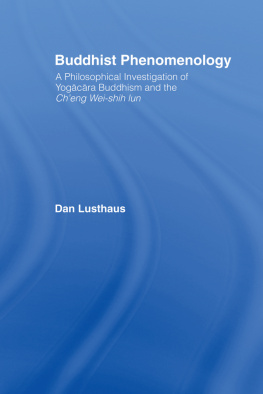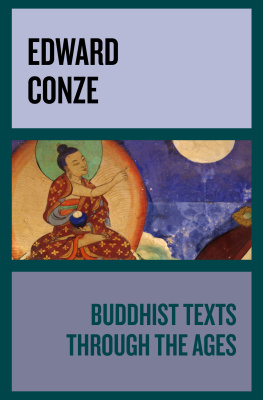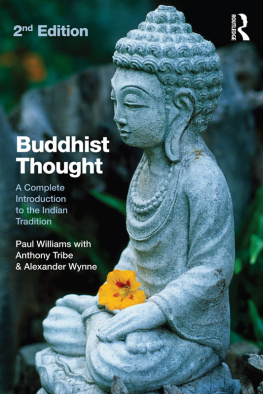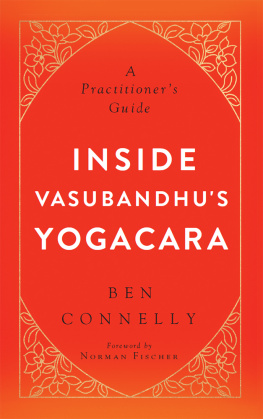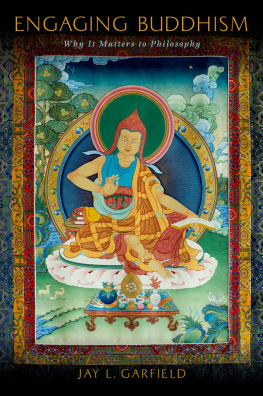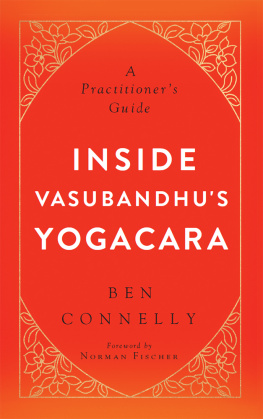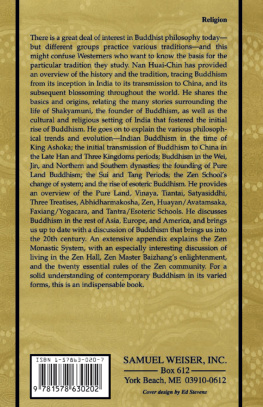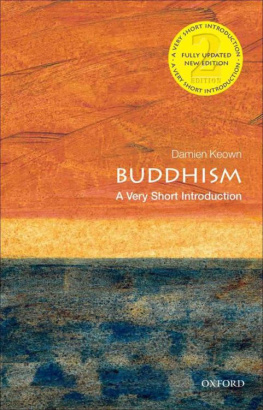Buddhist
Phenomenology
General Editors:
Charles S. Prebish and Damien Keown
The Curzon Critical Studies in Buddhism Series is a comprehensive study of the Buddhist tradition. The series explores this complex and extensive tradition from a variety of perspectives, using a range of different methodologies.
The Series is diverse in its focus, including historical studies, textual translations and commentaries, sociological investigations, bibliographic studies, and considerations of religious practice as an expression of Buddhism's integral religiosity. It also presents materials on modern intellectual historical studies, including the role of Buddhist thought and scholarship in a contemporary, critical context and in the light of current social issues. The series is expansive and imaginative in scope, spanning more than two and a half millennia of Buddhist history. It is receptive to all research works that inform and advance our knowledge and understanding of the Buddhist tradition.
THE REFLEXIVE NATURE OF AWARENESS
Paul Williams
BUDDHISM AND HUMAN RIGHTS
Edited by Damien Keown, Charles Prebish, Wayne Husted
ALTRUISM AND REALITY
Paul Williams
WOMEN IN THE FOOTSTEPS OF THE BUDDHA
Kathryn R. Blackstone
THE RESONANCE OF EMPTINESS
Gay Watson
IMAGING WISDOM
Jacob N. Kinnard
AMERICAN BUDDHISM
Edited by Duncan Ryuken Williams and Christopher Queen
PAIN AND ITS ENDING
Carol S. Anderson
THE SOUND OF LIBERATING TRUTH
Edited by Sallie B. King and Paul O. Ingram
BUDDHIST THEOLOGY
Edited by Roger R. Jackson and John J. Makransky
EMPTINESS APPRAISED
David F Burton
THE GLORIOUS DEEDS OF PRA
Joel Tatelman
CONTEMPORARY BUDDHIST ETHICS
Edited by Damien Keown
INNOVATIVE BUDDHIST WOMEN
Edited by Karma Lekshe Tsomo
TEACHING BUDDHISM IN THE WEST
Edited by v.s. Hori, R.P. Hayes and J.M. Shields
EMPTY VISION
David L. McMahan
SELF, REALITY AND REASON IN TIBETAN PHILOSOPHY
Thupten Jinpa
BUDDHIST PHENOMENOLOGY
Dan Lusthaus
Buddhist
Phenomenology
A Philosophical Investigation of Yogcra Buddhism and the Ch'eng Wei-shih lun
Dan Lusthaus
First published 2002
by RoutledgeCurzon
Published 2013 by Routledge
2 Park Square, Milton Park, Abingdon, Oxon OX14 4RN
711 Third Avenue, New York, NY 10017, USA
Routledge is an imprint of the Taylor & Francis Group, an informa business
2002 Dan Lusthaus
All rights reserved. No part of this book may be reprinted or reproduced or utilised in any form or by any electronic, mechanical, or other means, now know or hereafter invented, including photocopying and recording, or in any information storage or retrieval system, without permission in writing from the publishers.
British Library Cataloguing in Publication Data
A catalogue record of this book is available from the British Library
Library of Congress Cataloging in Publication Data
A catalog record for this book has been requested
ISBN13: 978-0-7007-1186-4 (hbk)
ISBN13: 978-0-415-40610-9 (pbk)
ISBN 978-0-415-40610-9 (pbk)
Table of Contents
Yogcra Buddhism as a distinct and important school first attracted the attention of Western scholars early in the Twentieth century. The enormity and complexity of Yogcra has posed a daunting, but rewarding challenge to the Western scholars who have attempted to tackle it.
At the beginning of the Twentieth century many of the seminal Indian Yogcra texts were no longer extant in their original Sanskrit but only in Chinese or Tibetan translations. With intrepid determination, already in the nineteenth century scholars such as Pelliot, Stein, and Lvy, scoured India and Central Asia searching for ancient, forgotten sites and texts, often successfully relying on the travelogue composed by Hsan-tsang in the seventh centurythe Hsi yu chi (Record of Western Lands)to locate and identify such places. Propelled by the discovery of long lost Sanskrit manuscripts (e.g., Sylvain Lvy's discovery in Nepal and subsequent publishing of Asaga's Mahynastralakra and Sthiramati's commentary on Vasubandhu's Triik) scholars began making available, in Western language translations, extended examples of the Yogcra system with all its categorial and terminological complexity. This phase of Western Yogcra studies primarily employed philological and historical methodologies developed in European Nineteenth century biblical studies.
In the latter half of the Twentieth century, scholars became more modest in their efforts. Philological work continued (critical editions, concordances, etc.), but little appeared in English; certainly nothing to rival the early achievements of Valle Poussin and Lamotte.
The Yogcra school appeared relatively late in the development of Indian Buddhism (ca. fifth century), seeing itself as a continuation or fulfillment of all the earlier developments rather than as a radical departure. It incorporated virtually everything that previous Buddhist schools had developed, from intricate abhidharmic systems with elaborate technical vocabularies, to detailed expositions of all the theoretical and practical issues entailed in each of the many stages along the path to Awakening; from reevaluations of sundry major and minor doctrinal disputes in the light of reason and an expanding scriptural canon, to innovative models that recontextualizedwhile largely preserving and absorbingthe full gamut of Buddhist thought and practice that had preceded Yogcra. The profound influence of Yogcra on subsequent Buddhist developments in East Asia and Tibet still remains largely unacknowledged and unexplored by Western scholars. Yogcra sits at the hub of Buddhism, absorbing most of what came before it, and influencing (directly and indirectly) much of what came after.
Some of the early scholars did concern themselves with the philosophical significance of the Yogcra material, but with less impressive results than they demonstrated with their philological acumen. Stcherbatsky, for instance, recognized some affinities between Yogcra (primarily in its later developments in Buddhist logic) and Kant's critical philosophy in that both paid enormous attention to the activities of cognitive construction through which the world appears to us as it does. But there were major differences between Yogcra and Kant. Some examples: For Kant a thing in-itself is ultimately unknowable as it is in itself; i.e., it is noumenal. For Yogcra the way things happen (yathbhtam) is eminently knowable, and seeing things as they truly are is one of the goals of the system. For Kant, we subliminally intuit things in-themselves, but never actually perceive anything beyond our own mental representations (Vorstellungen); for Yogcra eliminating precisely this sort of narcissistic cognitive closure (vijapti-mtra), so that one's cognitions (jna) are open to everything beyond ourselves, like a mirror (dara), is the cognitive shift (raya-parvtti) necessary to become Awakened (bodhi). That while Stcherbatsky was writing, contemporary developments in Western philosophyparticularly Husserl and the phenomenologistswere practicing a brand of philosophical investigation much closer to Yogcra than was Kant, largely escaped his attention.
Valle Poussin was enamored of Idealism, as were many of his contemporaries who harbored religious and spiritual interests. For him and many subsequent scholars, Yogcra represented one of the great Indian Idealist systems. That interpretation will be challenged in the present work.

